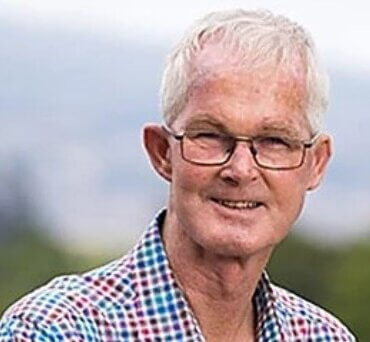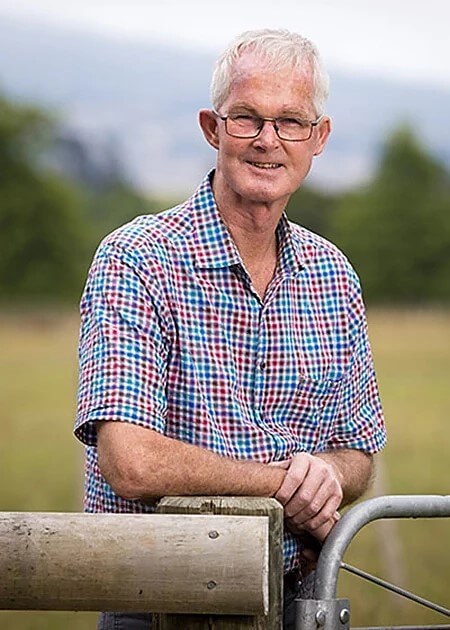
Jim van der Poel
Ōhaupō’s Jim van der Poel was re-elected at DairyNZ’s annual meeting in Te Awamutu last week
Chairman Van der Poel reported on a challenging and busy year where farmers tackled inflation and regulation issues.
“There is no doubt it has been a challenging year but, despite this, our farmers remain committed to delivering for their teams, families, animals and land. We produce world class products and should be incredibly proud of that,” he said.
“DairyNZ is working with farmers to help them manage the current economic climate, so our sector can work through current cost pressures and continue producing high-quality products long-term.
“We will also continue to work hard to find fair and practical solutions on issues that matter, advocacy on your behalf, including a solution to emissions that is better for farmers than the Emissions Trading Scheme.”
North Canterbury’s Cameron Henderson joined the DairyNZ board and chief financial officer Robyn Marsh said he and van der Poel would play a key role as directors representing farmers.
“Cameron and Jim are motivated and driven dairy leaders who will have an important role supporting the leadership and direction of DairyNZ, and dairy farming in New Zealand,” she said.
The pair are two of five farmer-elected directors along with three board-appointed directors on DairyNZ’s board.
Colin Glass did not seek another term.
Mary-Anne Macleod was confirmed as an appointed director for another term, while Robbie Byars was also elected unopposed to the Directors’ Remuneration Committee.
DairyNZ’s chair will be confirmed at its next board meeting, in two weeks’ time.
Meanwhile DairyNZ has been encouraging farmers to plan for the months ahead, amid increasing costs and an expected El Niño weather pattern.
General manager of farm performance, Sarah Speight, said farmers need to focus on growing and utilising as much pasture as possible, as it remains the cheapest source of feed.
Being cost-conscious was particularly important with DairyNZ having updated the national breakeven forecast to $7.78kg/MS, an increase from $7.51kg/MS. The breakeven milk price is the milk sale price per kilogram of milksolids to cover the farm’s costs in a season, excluding capital expenditure and principal repaid on loans.
DairyNZ head of economics, Mark Storey, said that the breakeven figure had been updated based on new pricing information, tax changes and in response to milk price and dividend payment announcements.
“Outside the breakeven milk price, we have seen farm expense forecasts increase, impacting overall costs, while revenue expectations have shifted with high dividend payouts, accompanied by decreasing milk price expectations for the 2023/24 season,” he said.









